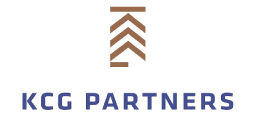The Hungarian Parliament approved the autumn tax package on 26 November 2024. The amendments introduce significant changes to direct and indirect taxes alike, the most important changes are summarized below.
The so-called autumn tax package – unlike in previous years – has been made available for public consultation by the Ministry of Finance in the middle of October (open for remarks until 24 October). The first proposal has been further amended with several new items, as follows:
Income taxes
The amount of the family tax allowance will be increased in two steps: firstly by 50% as of 1 July 2025 and finally doubled as of 1 January 2026, meaning that the deductible amount from the consolidated tax base will be
- HUF 100 000 and subsequently HUF 133 340 for one child (dependent),
- HUF 200 000 and HUF 266 600 after two children, and
- HUF 330 000 then HUF 440 000 after three or more children.
As of 1 January 2025, the flat personal income tax on short-term rentals, including Airbnb, is increased significantly from HUF 38,400 to HUF 150,000 per room per year. This change practically applies only to Budapest (over 2 million guest nights/year), in other Hungarian cities the previous flat rate remains intact.
Cafeteria items are also extended: a new ‘pocket’ will be added to the SZÉP-Kártya - also starting 1 January 2025 - the “Active Hungarians” pocket can be used to buy services related to active life and sports. Employers can transfer HUF 10,000 per month to the pocket as bonus benefits, increasing the maximum amount that can be paid out annually with the SZÉP-Kártya from HUF 450,000 to HUF 570,000.
Twofold housing support is also introduced: (i) up to 50 % of the benefit on the SZÉP-Kártya account can be used for housing renovation, and (ii) employers may provide a tax-free maximum monthly allowance of HUF 150,000 to employees under 35 years of age for the rent of an apartment or the repayment of a housing loan, which are considered as bonus benefits (detailed eligibility criteria and tax implications yet to be expected).
In-kind contribution of intellectual property to a company (‘apport) by the original ‘author’ will also be tax exempt from 2025 up to the value indicated in the company's articles of association (practically the market value).
Sport-related tax allowances are also amended: donations for professional sport organizations (spectator team sports) might be considered as a deductible expense, up to a limit of 1% of its yearly turnover and the spectator team sport-related tax allowance also applies to donations for the purpose of covering the operative cost of a national sports federation.
On permanent investment accounts (TBSZ), social contribution tax emption can only be applied further on from social contribution tax (“Szocho”) if the account is not terminated prematurely and no personal income tax is payable.
Detailed rules for global minimum tax compliance have also been released: the deadline for a domestic group member to prepare, declare and paying the top-up tax is the 20th day of the 11th month after the last day of the tax year, i.e. first by 20 November 2025. The official form – to declare the additional tax liability and provide information on the members of the group to the tax authorities – has also been made available by the Hungarian tax office.
Indirect taxes
Implementing the corresponding EU rules as of 2025, SMEs not established in Hungary but in the EU will also be able to opt for the VAT exemption, provided that their annual net turnover does not exceed HUF 12 million (the amount has not been increased). Preferential VAT rate of 5% VAT on the sale of newly built residential homes also extended until 31 December 2026.
Valorisation of tax rates - i.e. automatic inflation-tracking tax increases - will be applied inter alia for fuel, alcoholic beverages, car tax and car transfer duty from 2025 and for others from 2026 (e.g. excise tax on fuel, tobacco; company car tax; etc.). Retail tax is extended to platform operators; i.e. online marketplaces that provide service to retail sellers will also be subject to the additional tax (“TEMU tax”). Platform operators will be subject to a notification obligation within 15 days of becoming taxable persons. The taxable amount will be the aggregate net turnover from the sale of all goods sold through the platform, and if the platform operator itself carries out retail activities its turnover will also be included in the taxable amount.
Tax procedure
Finally, a new tax procedure is also introduced: in the data reconciliation procedure, the tax authority might request the taxpayer to rectify errors and discrepancies found in the provided data (e.g. in the online invoice data) within 15 days. If the taxpayer fails to comply with that request the tax authority a default penalty can be imposed with gradually increasing amounts.
By Balint Zsoldos, Head of Tax, KCG Partners Law Firm


